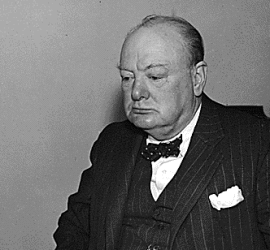
If I had to pick a period of time to be out of politics for various personal reasons, I couldn’t really have chosen a worse few years than those just gone. Vladimir Putin was making his first moves on the Crimea, with all that implied about Russian assertiveness, European security cooperation and the abuse of referendums in the interest of nationalism.
I come back to find Britain having voted to Leave the European Union, Donald Trump running close in the American presidential election, and Aleppo being flattened from the air. Those same themes are still current, aren’t they?
¤ ¤ ¤
The biggest thing I’ve missed has to be the referendum on 23 June. I’d done a small amount of leafleting and registering voters in the campaign, but had been largely a bystander.
I’d gone to bed that Thursday night told by the polls that Remain victory could only be narrow but had been woken at about 1 am by the sound of fireworks in the street. That sounded ominous. Remain campaigners wouldn’t have been celebrating a narrow win that way, would they. So why was anyone else doing it?
I checked the results and saw that Leave had won Swindon, the kind of area that should have been voting Remain. Oh shit, everything we had said about appeasement of the Eurosceptics was coming true. But at least I could get back to sleep.
The following morning, when the full picture came clear, I suppose I was already prepared. (So thanks, fireworks people.) Shocked, but not surprised. 30 years of feeble pro-European leadership had its price.
The right music for the drive to work was full of anger, bitterness and betrayal (Alanis Morissette’s You Oughta Know) and the first thing to read was Winston Churchill’s speech in the House of Commons after the Munich agreement in 1938.
Munich, and the abandoning of Czecholslovakia, was a disaster, and a self-inflicted disaster. Everything about it came from our own political weaknesses, our refusal to look threats in the eye and see them for what they were. We had appeased those who threatened us for years, and finally they were strong enough to take over.
It won’t lead to world war, but David Cameron’s referendum has many of the same characteristics. The negotiations that must follow to settle Britain’s new place in the world will see Britain weak, isolated and vulnerable.
EU negotiations hitherto, for all their flaws, have at least been characterised by a shared determination to build Europe. The knowledge that the EU is for the long-term has created a modest atmosphere between the member states of give and take and occasional sacrifice. (Tomasso Padoa-Schioppa’s book “Europe, a civil power” captures some of this.) I don’t want to overstate the atmosphere, but I don’t want to deny it either. But in the case of Britain, that atmosphere is now gone. The negotiating parties will no longer have shared goal, or even a shared sense that they hang together, or a shared knowledge that there will be future challenges to be dealt with together.
Britain’s coming negotiations with the other EU countries will be entirely unlike those we have had before. We have turned our back on an idea that they thought we shared; indeed by turning our back, we make it harder for them to adhere to it themselves. This is not the way to win friends and influence people.
But, we’ve done it. 52% of the voters cast their votes that way on 23 June 2016 and there will be consequences. There were consequences from Munich, too.
¤ ¤ ¤
Extracts from Winston Churchill’s speech, 5 October 1938
I will begin by saying what everybody would like to ignore or forget but which must nevertheless be stated, namely, that we have sustained a total and unmitigated defeat
…
We are in the presence of a disaster of the first magnitude
…
In a very few years, perhaps in a very few months, we shall be confronted with demands with which we shall no doubt be invited to comply. Those demands may affect the surrender of territory or the surrender of liberty.
…
I do not grudge our loyal, brave people, who were ready to do their duty no matter what the cost, who never flinched under the strain of last week – I do not grudge them the natural, spontaneous outburst of joy and relief when they learned that the hard ordeal would no longer be required of them at the moment; but they should know the truth. … they should know that we have sustained a defeat without a war, the consequences of which will travel far with us along our road;
…
And do not suppose that this is the end. This is only the beginning of the reckoning. This is only the first sip, the first foretaste of a bitter cup which will be proffered to us year by year unless by a supreme recovery of moral health and martial vigour, we arise again and take our stand for freedom as in the olden time.
